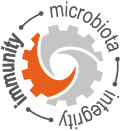- Innate immunity: Also referred to as nonspecific immunity is the immunity all animals are born with and is the animal’s first line of defence against infectious agents.
- Acquired immunity: Also referred to as adapted or specific immunity, is immunity that develops as the animal matures. Acquired immunity produces specific responses to each infectious agent, and builds up an immunological memory against pathogens for ensuring faster elimination in subsequent exposures.
You are viewing Sub-Saharan Africa
- United States
- Canada
- Mexico
- South America
- EMENA
- Sub-Saharan Africa
- Russia
- South Asia
- Asia Pacific
- China
- Global
Choose Your Location:
- United States
- Canada
- Mexico
Popular Searches
- Animal Nutrition & Health
- Intestinal Health
- Intestinal Immunity
Intestinal Immunity

Three important gears make up the intestinal health of animals and intestinal immunity is one of these.
Each of these three gears affects the other two. The intestinal microbiota of an animal is protected by the intestinal barrier/integrity, and their effectiveness is greatly enhanced by the largest immune organ in the body, the intestine.
The intestine is exposed to a large diverse intestinal microbiota, both pathogenic and commensal, which is kept in check by the intestinal immune system via:
- Producing mucous from intestinal goblet cells.
- Producing antibacterial peptides that diffuse into the intestinal lumen.
- Producing Immunoglobulin A that lines the intestinal epithelium.
- Destroying microorganism that invade the intestinal mucosa by intestinal macrophages and plasma cells.
All of the above components work together to protect the animal from pathogens.
The Immune System of Production Animals
The primary function of the immune system is to protect animals from environmental threats that can impede their survival. The immune system identifies threats and eliminates these threats as quickly as possible and develops an immunological memory.
An immunological memory allows animals to remember specific pathogens and helps to eliminate these pathogens faster with subsequent exposures to the same pathogen.
As mentioned already, the intestine is the largest immune organ in the body and is often the first line of defence against the invasion of pathogens. However, due to the severe pressure on modern animal production, these animals are exposed to excessive levels of physiological stress that lead to immune suppression. As a result, these animals are very susceptible to enteric diseases.
In order to protect layer and breeder pullets from serious poultry diseases an intense vaccination schedule is followed during the rearing phase.
While these vaccination schedules are vital for their survival and future production they can also negatively affect the birds’ immune system.
Piglets are also often weaned at a young age before acquired immunity has had time to develop. This means piglets are entirely reliant on innate immunity for their survival.
Developing and maintaining intestinal immunity in modern swine and poultry production is therefore a vital gear in improving these animals’ intestinal health.
In modern animal production innate immunity is key to the survival of young animals. Modulation of innate immunity will therefore enhance the ability of the animal to repel a pathogenic challenge, which could lower the need for expensive medical interventions. Modulating innate immunity will also enhance the efficacy of vaccinations given to pullets and will help to mitigate the negative effects of weaning stress in piglets.
Nonspecific immunomodulation
Nonspecific immunomodulation is an attempt to heighten immunologic capabilities at a time when an animal could be exposed to one or several pathogens and /or be immunocompromised.
Nonspecific immunomodulation can be advantageous during:
- The neonatal period when the immune system is not fully developed.
- Periods of stress induced immunosuppression.
- Viral or bacterial induced immunosuppression.
Feeding animals Beta 1,3 Glucan, an indigestible glucose fibre, has shown successful results with regards to prime innate immunity in both poultry and swine, thereby enhancing the ability of these animals to resist pathogens.
Kemin’s Three-Geared Approach to Intestinal Health
The intestinal health of animals is incredibly important, yet incredibly intricate. Kemin has therefore developed a three-geared approach to address intestinal immunity, intestinal microbiota and intestinal integrity holistically.
To strengthen intestine immunity, Kemin developed Aleta™, a highly bioavailable source of linear Beta 1,3 Glucan, that can help support intestinal health through innate intestinal immune modulation.
- California Supply Chain Act
- Email Disclaimer
- GDPR Personal Data Addendum
- General Terms & Conditions for Vendors
- Global Environmental Policy Statement
- Indirect Cost Estimates
- Kemin Terms & Conditions
- Modern Slavery Act Transparency Statement
- Privacy Policy
- Sitemap
- Change Cookie Consent
- Animal Welfare Statement
© Kemin Industries, Inc. and its group of companies all rights reserved. ® ™ Trademarks of Kemin Industries, Inc., USA
Certain statements may not be applicable in all geographical regions. Product labeling and associated claims may differ based upon government requirements.
